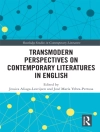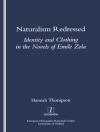In the Middle Ages and early modernity, celestial observation was frequently a subject for verbal rather than numerical and geometrical recording. These records can now be difficult to decode, since what they address is frequently obscured by formal conventions of genre, imagery, rhetoric, prosody, to name but a few. The volume collects essays exploring such configurations between literature and observation from Europe to China.
How, contributors ask, were verbal representations of celestial phenomena encoded and self-consciously placed vis-à-vis other systems of representation and knowledge? What kinds of data are represented, and what are the modes in which they are communicated? What interpretational problems arise when present-day disciplines like climatology, meteorology, geophysics, and astronomy, but also literary studies, try to access them? How were discourses on religion, law, anthropology, aesthetics, colonialism etc. linked, in and through their verbal presentation, with astronomical observation and knowledge? How did individual scholars, texts, and concepts travel between European and non-European cultures, both in space and in time, and which constructions of self and other arose in the process?
عن المؤلف
Aura Heydenreich and Klaus Mecke, Universität Erlangen
; Florian Klaeger, Universität Bayreuth
; Dirk Vanderbeke, Universität Jena
; Jörn Wilms, Universität Bamberg.












